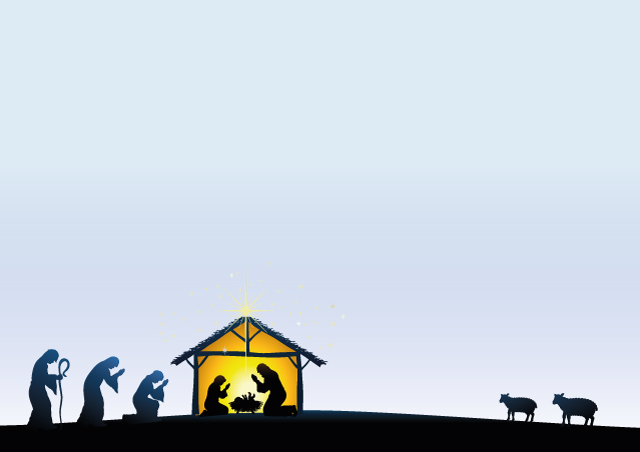Jesus is risen – now what?. Sermon given 15th April 2018 at S. Andrew’s Ealing, Revd Susan McCoan
Acts 3:12-19
Luke 24: 36b-48
A few years ago, I conducted a funeral in church for a gentleman who had been at one time a regular churchgoer but who, as his health declined, had been unable to come for some time. I’d visited him at home, and got to know him a little, and of course his family had filled in the details of his life for me.
All was going well in the service, until just before the address, when I looked out at the congregation and at the back corner of the church.
What the family had not thought to tell me was that the deceased had a brother, an identical twin brother, who lived a little distance away. They hadn’t thought he would get there but he’d arrived, late, and slipped in at the back.
I thought I was seeing a ghost. It gave me quite a turn.
I needed a bit of a deep breath to carry on. So I have every sympathy with the disciples of Jesus when they too think they have seen a ghost.
Think about it. They’ve given up everything to follow a man who’s now been killed. And in spite of everything that Jesus had said about his suffering and death and rising again in three days, they didn’t see what that would mean for them. They’ve heard that the tomb was empty, but that could mean anything.
They certainly didn’t expect Jesus to turn up in their living room and ask for some supper.
So they have gathered, frightened and confused, not sure what to do next, when they are disturbed by the sudden arrival of two friends – two of the wider circle of followers of Jesus. These two were on their way home to Emmaus – they should have been there by now. It’s already dark; yet they’ve come all the way back to Jerusalem, bursting with the news that they’ve just met Jesus!
This is already weird. We want the whole story. And while the two are telling it, and the disciples are trying to take on board what they’re hearing – there’ s suddenly somebody else in the room.
How did that happen? How did he get in? It’s a ghost!
They are terrified. Jesus has to show them that, no, he’s not a ghost; he’s solid flesh and bone; and no, he’s not an impostor because look, the wounds are still there in his hands and feet; and when they’ve quite finished being hysterical perhaps they’d like to bear in mind that he hasn’t eaten anything for three days and could they please give him some food?
This is hard work for Jesus. These people are grieving, and in shock from his death; now they’re in shock again and terrified. It’s demanding being with one person in distress; there are at least 13 in this room. And Jesus has to calm them all, and give them his peace, and bring them to a place of stillness where they can begin to listen properly.
So why does he do it? Why scare them witless when they’re already upset enough? They know what his mission is; why not just wait until Pentecost, send the Holy Spirit and let them get on with it?
And why does he do it when it seems so costly to himself? When you see the demands, the emotional cost, of this resurrection encounter, you can perhaps see why it didn’t happen often. Luke tells us of only these two occasions.
Partly, I suggest, it is another expression of the great love of Jesus for his friends.
The risen Jesus only ever appears to disciples or close friends; and it’s always when they are on their own. It’s slightly frustrating for us because it means there are no independent witnesses. But you can see why it had to be like that. It was hard for most people to get what Jesus was really about before his death; they’d never grasp it now. These meetings, of the risen Christ with his disciples, are precious and deeply meaningful moments, reserved for the committed few.
And once the disciples are over the shock, then they are full of joy and wonder. Then they know that Jesus really is risen; and that far from their leader being lost, and their discipleship at an end, he is alive in a whole new way and their real discipleship is just beginning. All the faith that they had in Jesus, which must have been badly dented by his death, is suddenly vindicated. Of course they were right to trust him.
So this is a wonderful affirmation for the disciples, a hugely generous gesture of unshakeable love.
But this appearance is not just for the benefit of the disciples. This is not the moment for them to think, oh he’s fine now, thank goodness for that, now we can all sit back and relax. They have a job to do. This tiny handful of people – the eleven disciples, the Emmaus couple and a few others – are now responsible for spreading the good news of Jesus throughout the whole world. So the other part of the reason for Jesus appearing to them, is to help them fit together all that they’ve known and experienced with him, to put in the final pieces of the mental jigsaw, so that they grasp fully what is going on, and what part they have to play now.
Se he begins to teach. He tells them, as he told the two on the road to Emmaus, how all the scriptures that they know and love, the Law of Moses, the prophets and the psalms, have all been pointing towards his life and work. And now they see what the psalmists meant, now they see what the prophets were talking about, now they know how the Law of Moses laid the foundations for what is now happening.
I don’t know if you’ve ever come to the end of a detective novel, and found out who’s done it, and then wanted to go back and read the story again to see if you could have picked up the clues? If you do, you’ll know things take on a different significance – so that’s why the man with the bowler hat was at the ticket office; so of course it mattered that they had a marmalade cat.
They’d read these scriptures often enough; but now Jesus invites them to look again knowing that he is their fulfilment.
And then, having shown how all the Hebrew scriptures, how the story of God’s people through the ages has led them to this point, then he talks about his own teaching: that the Messiah must suffer and rise from death three days later.
And again, things that they already know, take on a new meaning.
And now, now that they see how it all fits together, now that they really understand how God is at work and that it all makes sense, now they are ready to hear what they are going to have to do about it.
‘In his name’, Luke tells us Jesus says, ‘the message about repentance and the forgiveness of sins must be preached to all nations, beginning in Jerusalem. You are witnesses of these things.’
It sounds like an impossible task. They are so few, the world is huge – and there is no mass communication system, no postal service, and precious little transport. Where would you even start?
Well, we know where they started. The Book of Acts tells us what they did in those early days, as they took all this on board. And what they did was pray. They met, with the women and a few others, and they prayed together. They didn’t start with the world – they started with themselves and their relationship with God. Later on, after Pentecost and the coming of the Holy Spirit, they got bolder and began to preach in public. And their first preaching, as we heard in our reading from Acts, was not a contrived event, but Peter simply offering an explanation to the people around him of what he and John had just done.
It’s really helpful to remember this, when we look around at the church today. What we often do in churches is to look back 50 years and say, oh, it was much bigger then, things are going downhill and what can we do to stop the decline? That, I think, only serves to make us anxious. What if instead we look back 2000 years?
There are already more of us in this room today than there were in that upper room with the risen Jesus. We have their evidence, and generations of Christian witness to confirm our belief in resurrection. We have no need to be afraid. We have no need to be daunted by the thought of how much there is yet to do, or how indifferent the world seems to faith of any kind. We have no need to worry, because God is at work. God is at work in our midst, as God was at work in that upper room.
A God whose love is so powerful that it can bring the world into being, a God whose love is so strong that it can break the bounds of death, a God whose love is poured out on each one of us, individually and personally, is a God who can do amazing things through us. Through us in our everyday lives; through us in this church.
Is that a surprising thought?
This is the message of resurrection. This is our hope and promise. This is what keeps us going when we are tired and fed up. This is God at work. It needs prayer, and we shall come to prayer in a little while. But let me leave you with this poem from Joy Cowley, a writer from Aotearoa, New Zealand. It’s called ‘Just suppose’.
Poem: Just suppose.
What good news that would be. What good news it is.
Amen.





